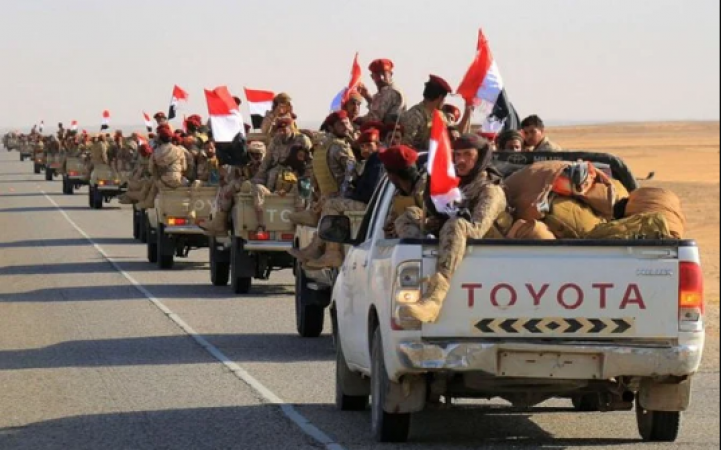
Al-Muqalla: Heavy fighting and gun exchanges across the country over the past 24 hours claimed at least six Yemeni government soldiers and an undetermined number of Houthis, local military and government officials said on Saturday.
The fighting has gotten worse as the world tries to convince the Houthis, backed by Iran, to extend the UN-mediated ceasefire that ended last week.
Also Read: Seven missile launches in two weeks have come from North Korea
According to local military officials who spoke to Arab News, the Houthis coordinated military strikes and heavy shelling against government forces in the southern province of Taiz, Lahaj and areas south of the capital city Marib.
According to Mohamed al-Naqib in Lahaj, the Houthis launched a ground attack on Friday after shelling their forces in the border of Yafa, which killed four soldiers and wounded at least seven others, in the mountainous region. Looks like an attempt to move on. The Southern Transitional Council, which governs the province, is pro-independence.
Our soldiers drove them out. According to al-Naqib of Arab News, several Houthi were killed or injured in the attack. He also said sporadic fighting and exchange of gunfire took place on Saturday after the Houthis withdrew after failing to gain any base.
Other Houthi forces bombed government troops guarding the city of Taiz on Friday evening with explosive-rigged drones, mortar shells and cannonballs, killing two soldiers and wounding several others.
Military officer Abdul Basit al-Baher told the Arabs that the Houthis first attacked government troops with a variety of heavy weapons in al-Shaqab, southeast of Tayz, and al-Aresh, east of Taiz. News on the phone.
According to al-Baher, the Houthis carried out heavy and simultaneous bombardment of government troops in Taiz during the most intense Houthi shelling since the end of the ceasefire. Al-Baher alleged that "they rained mortar rounds and heavy machine guns on our soldiers."
Also Read: US claims a failed rocket attack was directed at its troops in Syria
Meanwhile, outside Marib, where government troops were also engaged in sporadic fighting and exchanging mortar and heavy machine gun fire with the Houthis, Yemen's army on Friday fired two explosives fired at them by the Houthis. Rigged drone shot down.
On 2 October, just hours after UN mediation ended, the Houthis intensified their attacks on government forces in Taiz, Lahaj, Marib and Hodeidah.
Since the implementation of the ceasefire on 2 April, there have been significantly fewer casualties, and commercial flights are now allowed to leave Sanaa, which is under Houthi control. Additionally, more than 50 fuel vessels are now able to dock at Hodeidah.
In addition to refusing to extend the ceasefire, the Houthis refused to lift the Siege of Taiz until the internationally recognized government began paying public servants in the areas under their control.
According to the most recent iteration of a proposal made by UN Yemen envoy Hans Grundberg to the warring parties, the Houthis should pay public employees in their territories money from fuel ships entering Hodeidah, with the Yemeni government addressing any shortfalls. covers.
Also Read: PM Modi Announces ex-gratia from PMNRF over bus tragedy in Nashik
The Houthis have drawn criticism from the international community, including the United Nations Security Council, for making tough demands in an effort to extend the ceasefire and hinder efforts to end the war.